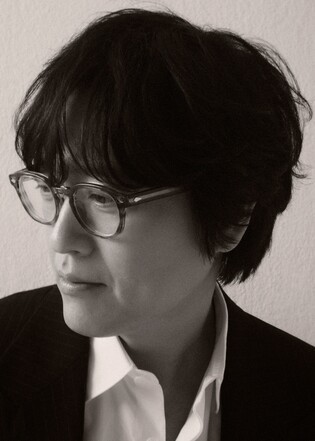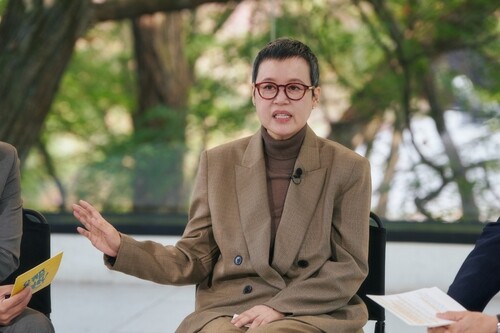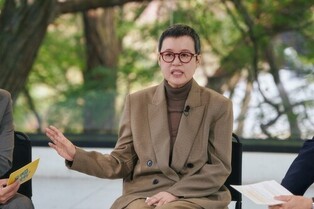(News Focus) Koreas-relations
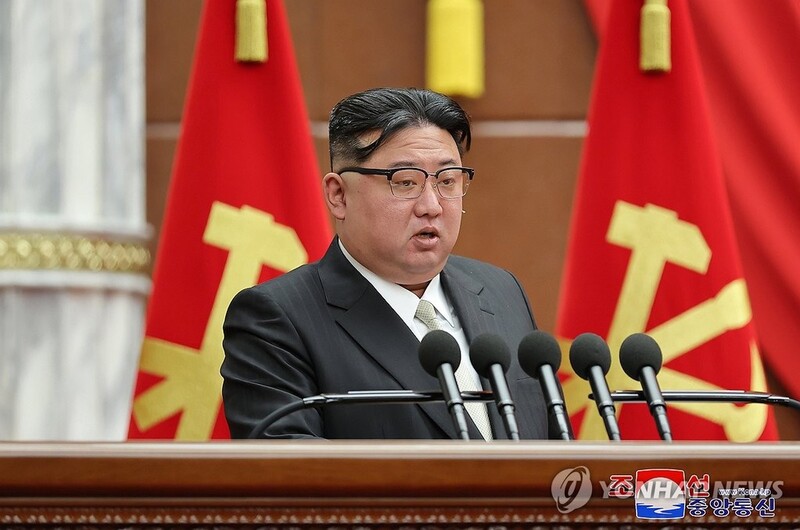 |
| ▲ This photo, carried by North Korea's official Korean Central News Agency on Dec. 31, 2023, shows the North's leader Kim Jong-un attending a plenary meeting of the Central Committee of the ruling Workers' Party of Korea the previous day, as he wrapped five days of the party meeting designed to review the 2023 policy goals and set those for next year. (For Use Only in the Republic of Korea. No Redistribution) (Yonhap) |
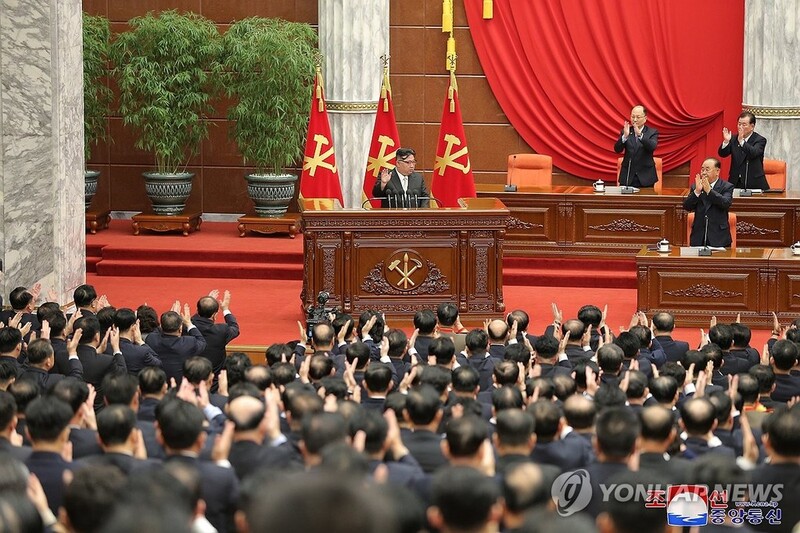 |
| ▲ This photo, carried by North Korea's official Korean Central News Agency on Dec. 31, 2023, shows the North holding a plenary meeting of the Central Committee of the ruling Workers' Party of Korea that ended its five-day session the previous day. (For Use Only in the Republic of Korea. No Redistribution) (Yonhap) |
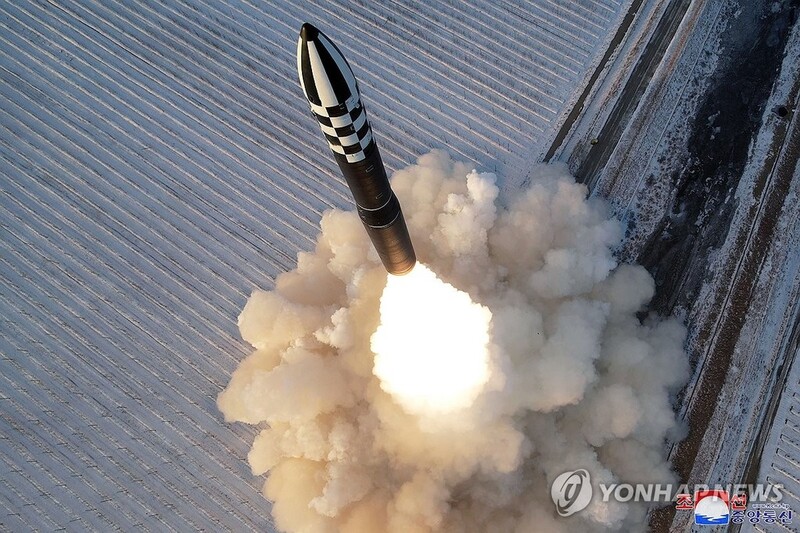 |
| ▲ This photo, carried by North Korea's official Korean Central News Agency on Dec. 19, 2023, shows the North's launch of a solid-fuel Hwasong-18 intercontinental ballistic missile the previous day. (For Use Only in the Republic of Korea. No Redistribution) (Yonhap) |
(News Focus) Koreas-relations
(News Focus) N.K. leader says 2 Koreas are 'hostile nations at war' with no chance of unification
By Kim Soo-yeon
SEOUL, Dec. 31 (Yonhap) -- North Korean leader Kim Jong-un's characterization of inter-Korean relations as those of "two hostile countries in a state of war" appears to be a veiled threat that the regime could use its nuclear weapons against South Korea, experts said Sunday.
Calling for a "fundamental change" in dealing with South Korea, Kim also said he will no longer consider South Korea a counterpart for reconciliation and unification, wrapping up five days of a plenary meeting of the Central Committee of the ruling Workers' Party of Korea (WPK) on Saturday.
"Relations between North and South Korea are no longer those of the same peoples but have become those of two hostile countries or countries in a state of combat," Kim was quoted as saying by the Korean Central News Agency (KCNA).
"We should not make a mistake any longer in regarding them as a counterpart for reconciliation and unification, as South Korea has declared us as its main enemy and colluded with foreign forces while seeking the collapse of our regime and unification by absorption," he said.
Experts said Kim's remarks indicated North Korea's threat to use tactical nuclear weapons against South Korea would not be just rhetoric, as Pyongyang will regard the South as a country in a state of war with it.
"If North Korea views inter-Korean relations as those of the same peoples, it would be self-contradictory if Pyongyang uses nuclear arms against South Korea," said Hong Min, a senior research fellow at the Korea Institute for National Unification (KINU).
"To justify its push to advance nuclear and missile programs and operate them against South Korea, North Korea set inter-Korean ties as a state-to-state relationship," he added.
This year, North Korea began using South Korea's full name, the Republic of Korea (ROK), in its official statements condemning the South. North Korea has long called the South "south Korea" or "the south Korean puppet."
In July, Kim Yo-jong, the powerful sister of the North's leader, issued hard-worded statements using the term "ROK" for the first time, when she condemned U.S. surveillance flights over its exclusive economic zone.
South Korea's unification ministry said at the time that North Korea's reference to the ROK is an expression of its "mockery" against South Korea, rather than an intent to regard the two Koreas' relations as a state-to-state relationship.
Under an inter-Korean basic agreement signed in 1991, inter-Korean ties were designated as a "special relationship" tentatively formed in the process of seeking reunification, not as state-to-state relations.
North Korea has preached for the notion of "Uriminzokkiri," which roughly translates into "among our own people," in handling inter-Korean affairs and the issue of reunification.
But at the latest WPK meeting, the North's leader announced a shift in dealing with Seoul as relations of "two countries in a state of war."
"We need to swiftly respond to a possible nuclear crisis and mobilize all physical means, including nuclear force, in a bid to accelerate preparations for the great event of putting the entire territory of South Korea under our control," Kim said.
He also called for the overhaul of North Korean organizations in charge of inter-Korean affairs, such as the United Front Department at the WPK.
Yang Moo-jin, president of the University of North Korean Studies, said Kim also signaled a revision in a blueprint for unification that North Korea's late founder Kim Il-sung unveiled in 1980.
North Korea has claimed the only realistic way to achieve unification is the federation system, which calls for the respecting of each other's differences in political ideology and government system in the form of "one state and two systems."
South Korea's spy agency said Thursday there is a high possibility that North Korea could carry out military provocations early next year ahead of South Korea's parliamentary election in April and the U.S. presidential election in November.
The National Intelligence Service made the assessment, citing North Korea's track record of staging provocations before South Korea's general elections and Pyongyang's reinstatement of key figures involved in high-profile provocations against Seoul.
"At the WPK meeting, Kim presented a detailed plan to accomplish key defense projects next year. In the run-up to the U.S. election, North Korea will seek to demonstrate its military capabilities at its maximum level to show that the development of its nuclear weapons is irreversible," Hong at the KINU said.
(END)
(C) Yonhap News Agency. All Rights Reserved






















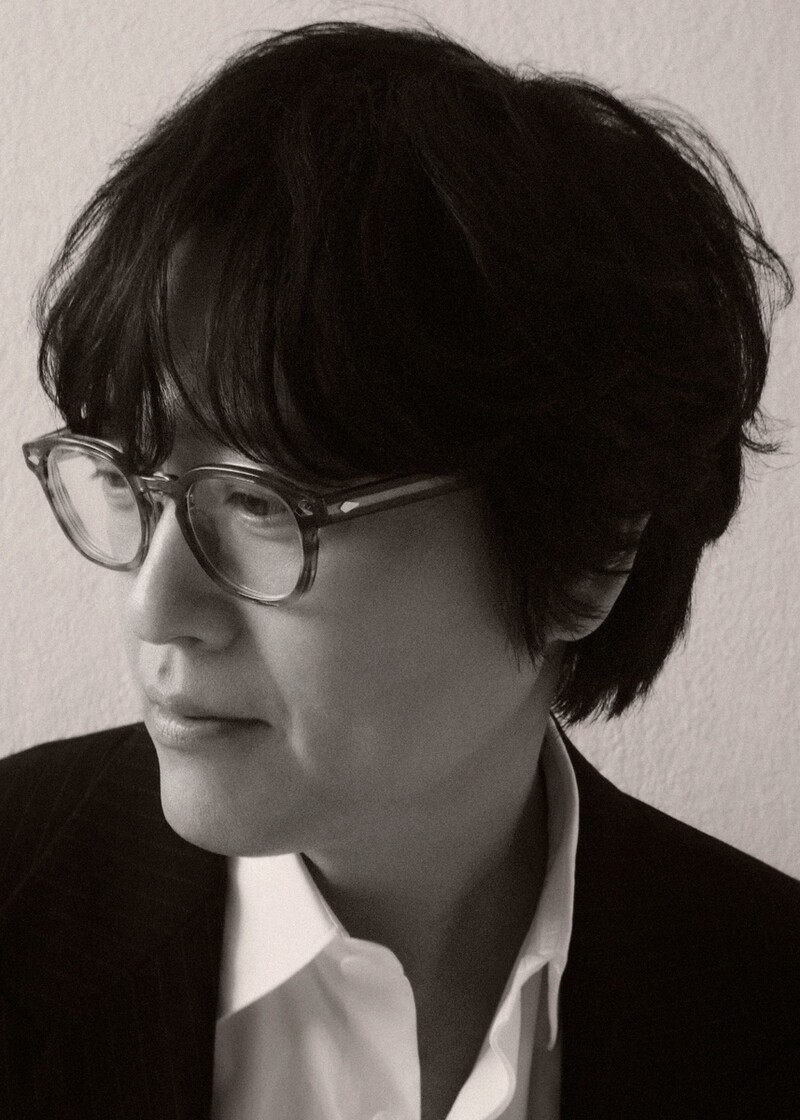
![[가요소식] 조항조, 새 싱글](/news/data/20251116/yna1065624915927473_582_h2.jpg)

